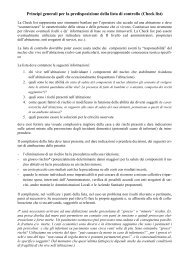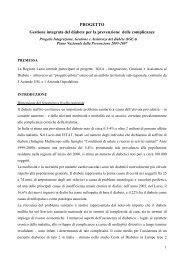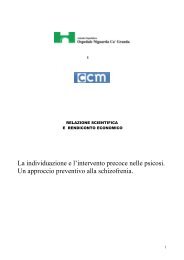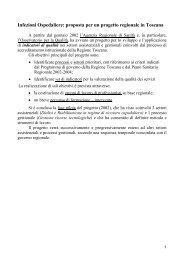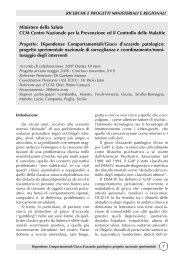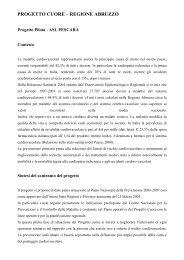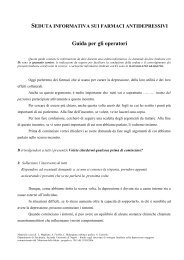Gaining health : analysis of policy development in European ...
Gaining health : analysis of policy development in European ...
Gaining health : analysis of policy development in European ...
Create successful ePaper yourself
Turn your PDF publications into a flip-book with our unique Google optimized e-Paper software.
Chapter 3<br />
14<br />
co-funded by the Public Health Agency <strong>of</strong> Canada and the<br />
Department <strong>of</strong> Health <strong>in</strong> the United K<strong>in</strong>gdom (England).<br />
The present study was to complement those quantitative<br />
surveys on NCD <strong>policy</strong> and their risks factors previously<br />
carried out by WHO at the global and <strong>European</strong> levels,<br />
us<strong>in</strong>g qualitative research methods to go deeper <strong>in</strong>to the<br />
NCD <strong>policy</strong> <strong>development</strong> process <strong>in</strong> a small number <strong>of</strong><br />
countries. In particular, the <strong>in</strong>terview<strong>in</strong>g <strong>of</strong> key <strong>in</strong>formants<br />
was expected to uncover aspects <strong>of</strong> <strong>policy</strong> <strong>development</strong><br />
that could not be obta<strong>in</strong>ed <strong>in</strong> other ways.<br />
Select<strong>in</strong>g the country case studies<br />
The <strong>in</strong>tention was to <strong>in</strong>clude countries from different parts<br />
<strong>of</strong> the WHO <strong>European</strong> Region, ensur<strong>in</strong>g examples <strong>of</strong> countries<br />
with a long history <strong>of</strong> systematically tackl<strong>in</strong>g NCD and<br />
some relative beg<strong>in</strong>ners. The follow<strong>in</strong>g criteria for country<br />
selection were therefore agreed:<br />
• a reasonable geographical distribution;<br />
• different levels <strong>of</strong> economic <strong>development</strong> across Europe;<br />
• a range <strong>of</strong> political, adm<strong>in</strong>istrative and <strong>health</strong> care systems;<br />
and<br />
• different lengths <strong>of</strong> NCD <strong>policy</strong> experience.<br />
Time and f<strong>in</strong>ancial resources <strong>in</strong>dicated that no more than<br />
eight case studies could be carried out. For practical<br />
reasons, the researchers’ countries <strong>of</strong> residence <strong>in</strong>fluenced<br />
the choice <strong>of</strong> Greece and Hungary as central and southern<br />
<strong>European</strong> countries. This opportunistic selection was<br />
strengthened by the fact that these two countries <strong>of</strong>fered<br />
examples <strong>of</strong> relatively early and late beg<strong>in</strong>ners and different<br />
<strong>health</strong> systems.<br />
The follow<strong>in</strong>g eight countries were therefore selected: Albania,<br />
F<strong>in</strong>land, France, Greece, Hungary, Ireland, Kyrgyzstan<br />
and Lithuania.<br />
Design<strong>in</strong>g the case studies – scope and<br />
dimensions<br />
In def<strong>in</strong><strong>in</strong>g the scope and dimensions <strong>of</strong> the proposed case<br />
studies, the researchers were m<strong>in</strong>dful <strong>of</strong> the fact that the<br />
ma<strong>in</strong> aim was to use these as a source <strong>of</strong> <strong>in</strong>formation and<br />
experience from which countries across Europe might<br />
learn. It was necessary therefore to be clear about certa<strong>in</strong><br />
concepts.<br />
What is meant by <strong>policy</strong> <strong>development</strong>?<br />
For practical purposes, the term <strong>policy</strong> was def<strong>in</strong>ed as “an<br />
agreement or consensus on the issues, goals and objectives<br />
to be addressed, the priorities among those objectives and<br />
the ma<strong>in</strong> directions for achiev<strong>in</strong>g them” (3).<br />
Government <strong>policy</strong>, which is the ma<strong>in</strong> concern <strong>of</strong> this study,<br />
is manifested <strong>in</strong> many ways. It may be discerned, from the<br />
provisions <strong>of</strong> acts <strong>of</strong> parliament, local by-laws and regulations,<br />
or be seen to evolve as the result <strong>of</strong> <strong>in</strong>cremental<br />
adm<strong>in</strong>istrative decisions or regulations (4). Even the lack <strong>of</strong><br />
a discernable <strong>policy</strong> statement may be considered a <strong>policy</strong><br />
<strong>in</strong> the sense that it <strong>in</strong>dicates a lack <strong>of</strong> <strong>in</strong>terest <strong>in</strong> a particular<br />
issue. Policy aims and objectives are frequently stated <strong>in</strong><br />
published “<strong>policy</strong> documents”.<br />
In <strong>policy</strong>/plann<strong>in</strong>g term<strong>in</strong>ology, a “strategy” or “action plan”<br />
is more specific than a <strong>policy</strong>, and def<strong>in</strong>es the broad l<strong>in</strong>es<br />
<strong>of</strong> action to achieve <strong>policy</strong> goals and targets. In practice,<br />
countries frequently use the terms <strong>policy</strong>, strategy and action<br />
plan <strong>in</strong>terchangeably. For reasons <strong>of</strong> practicality, <strong>in</strong> this<br />
study the central focus is on published <strong>policy</strong> or strategy<br />
documents.<br />
The <strong>in</strong>tention was not to analyse the content <strong>of</strong> such <strong>policy</strong><br />
documents <strong>in</strong> detail but to check how far they related to<br />
NCD prevention and control, and briefly to exam<strong>in</strong>e the<br />
range <strong>of</strong> <strong>policy</strong> <strong>in</strong>struments used, such as:<br />
Methodology, underly<strong>in</strong>g concepts and values



